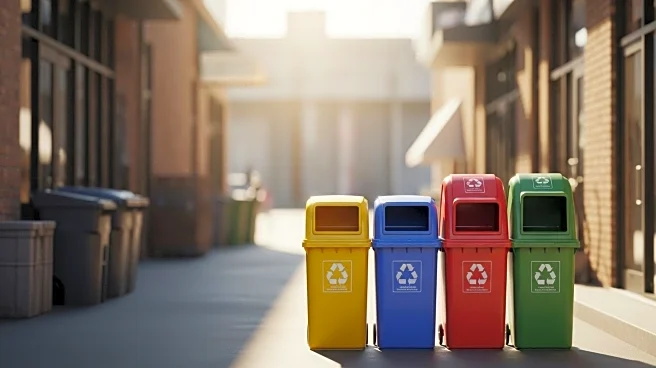What's Happening?
Denver has implemented a new recycling mandate that requires businesses to compost and recycle, following a voter-approved ballot measure. The initiative aims to improve environmental sustainability but has sparked debate due to the potential financial and operational burdens it imposes on local businesses. Some business owners argue that the mandate could lead to increased costs and logistical challenges, while supporters believe it is a necessary step towards reducing waste and promoting eco-friendly practices.
Why It's Important?
The recycling mandate in Denver represents a significant shift towards environmental responsibility, potentially setting a precedent for other cities. While it aims to reduce landfill waste and promote sustainability, the mandate could impact the economic landscape by increasing operational costs for businesses. This could lead to price adjustments or changes in business practices, affecting both consumers and business owners. The debate highlights the ongoing tension between environmental goals and economic realities, emphasizing the need for balanced solutions that consider both ecological and financial impacts.
What's Next?
As the mandate takes effect, businesses will need to adapt to the new requirements, potentially seeking assistance or guidance on compliance. City officials may need to address concerns raised by business owners, possibly through amendments or support programs to ease the transition. The success of the mandate could influence similar initiatives in other cities, prompting broader discussions on sustainable practices and their integration into urban policies.











